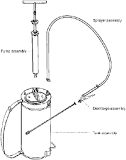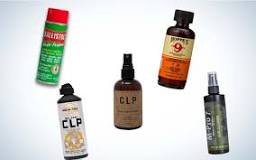Fogging, often used to control mosquito populations, raises concerns about its safety for humans. The short answer is yes, fogging can be harmful to humans, especially due to the chemicals involved and the manner in which they are applied.
What is Fogging?
Fogging involves spraying pesticide fogs into the air to kill adult mosquitoes. These sprays typically contain synthetic pyrethroids, which are designed to be more toxic than natural alternatives. While effective at killing mosquitoes, these chemicals can also pose risks to human health and the environment.
Health Risks Associated with Fogging
Respiratory Issues
Breathing in fog can lead to various respiratory problems. Common symptoms include:
- Nose and throat irritation
- Coughing and difficulty breathing
- Dizziness and headaches
Individuals with pre-existing conditions like asthma or chronic obstructive pulmonary disease are particularly vulnerable.
Neurological Effects
Research indicates that synthetic pyrethroids may have neurotoxic effects. Studies have linked exposure to these chemicals with conditions like ADHD and other neurological disorders. The World Health Organization classifies some of these compounds as possible human carcinogens, raising further alarms about their long-term effects.
Endocrine Disruption
Some studies suggest that exposure to these pesticides can disrupt endocrine functions, potentially affecting reproduction and sexual development. This is particularly concerning for children whose bodies are still developing.
Environmental Impact
Fogging doesn’t just affect humans; it wreaks havoc on local ecosystems. The chemicals kill not only mosquitoes but also beneficial insects like bees and butterflies, disrupting the food chain. This indiscriminate killing can lead to a decline in pollinator populations, which are crucial for plant reproduction.
Alternatives to Fogging
Instead of relying on fogging, consider these alternatives:
- Larvicides: Target mosquito larvae in standing water.
- Natural repellents: Use essential oils or other natural substances.
- Preventive measures: Eliminate standing water around your home and use screens on windows and doors.
FAQ
Is fogging safe for pets?
Yes, but with caution. Pets should be removed from treated areas during fogging and only allowed back in once the area has been aired out properly.
How long should I stay out after fogging?
It’s recommended to stay out for at least two to four hours after fogging. Always check the product label for specific instructions.
Can I use foggers indoors?
Using foggers indoors is risky. They can cause irritation or more severe health issues if proper ventilation isn’t maintained. Always follow safety precautions outlined on the product label.
In summary, while fogging can effectively reduce mosquito populations, it carries significant health risks for humans and pets alike. It’s crucial to weigh these risks against the benefits and consider safer alternatives whenever possible.







